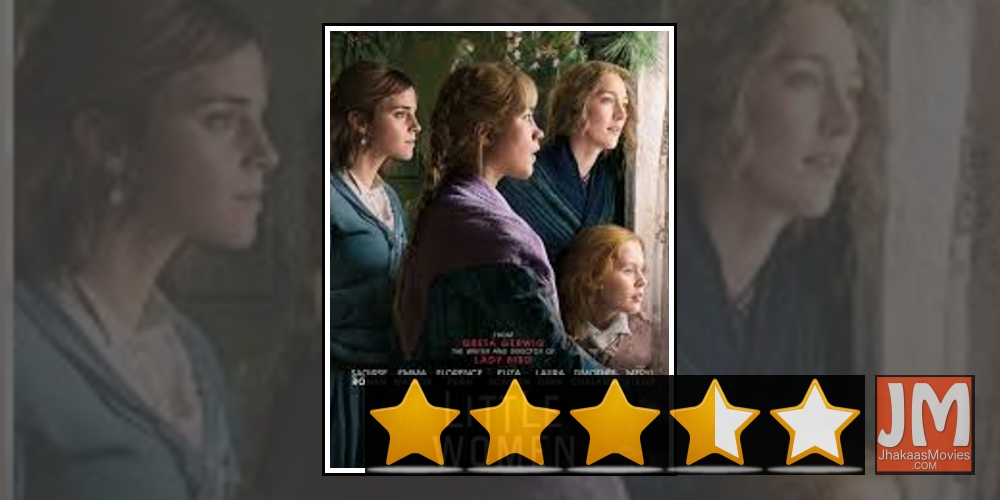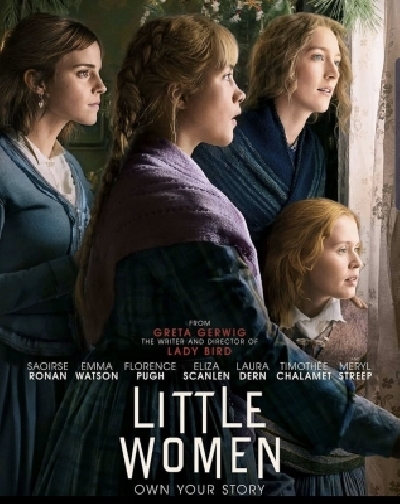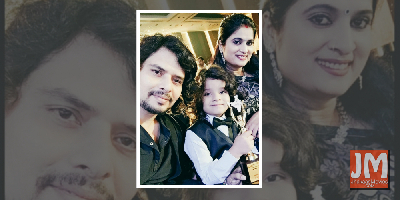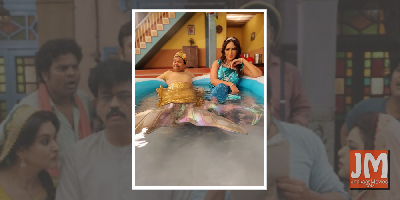 Aan Tiwari honoured with Best Child Actor award for Baal Shiv
Aan Tiwari honoured with Best Child Actor award for Baal Shiv Ghategi rahasymayi ghatnaye!
Ghategi rahasymayi ghatnaye! Amazon Prime Video unveils the 2021 Festive Line-up; brings a heady mix of Indian and International titles on the service
Amazon Prime Video unveils the 2021 Festive Line-up; brings a heady mix of Indian and International titles on the service Release: Music video of, Yeh Haalaath, from Mumbai Diaries 26-11
Release: Music video of, Yeh Haalaath, from Mumbai Diaries 26-11 Bhumi Pednekar feels she shares feel-good value with Akshay Kumar on screen
Bhumi Pednekar feels she shares feel-good value with Akshay Kumar on screen
Review: 'Little Women': Oddly nonlinear but effective

"Little Women"; Cast: Saoirse Ronan, Emma Watson, Florence Pugh, Eliza Scanlen, Laura Dern, Timothee Chalamet, Meryl Streep, Chris Cooper, Tracy Letts, Bob Odenkirk, James Norton, Louis Garrel, Jayne Houdyshell; Director: Greta Gerwig; Rating: ***1/2
Director Greta Gerwig's "Little Women", is an adaptation of Louisa May Alcott's 1868 novel of the same name. Like the novel, the film too has the timbre of a timeless, literary classic.
This tale of four close-knit sisters continues to delight, feeling every bit as alive today, as it must have been when it was originally set in the mid-19th century Massachusetts.
Juggling back and forth between time periods, the focal point of the story is Jo March (Saoirse Ronan) and her ambition to be a writer. The film bookends with her, but the rest of the narrative places her sisters Meg (Emma Watson) the teacher, Beth (Eliza Scanlen) the musical one, and Amy (Florence Pugh) the impulsive one and the artist of the family, at the forefront as well. All of them are trying to find a man to love and discovering what love truly is.
Diving into the emotional struggles of the characters as the tale progresses, there is quite a bit of depth to the story. Loss and relationships are what keeps this film emotionally afloat. Also, keeping the period in mind, the film subtly resonates with a tinge of feminism, occasionally leaning into speech advocacy of a woman's right to self-actualisation beyond marriage.
The narrative packed with frothy moments, lacking drama or purpose and criss-crossing through timelines, initially makes the film appear going nowhere in particular, and this is a sore point. So, by mid-point one tends to dismiss off the film as a juvenile piece of art. But by the final act, the narrative binds you emotionally.
What keeps you bound to the screen are the raw and realistic performances of the cast. With her charming, rebel-like demeanour, Saoirse Ronan easily shifts into the period mode to play Jo. She seems to belong to some previous era, without coming across as a rigid and aggressive person. Emma Watson portrays Meg, as the sister who knows what she wants out of life, which makes the character's choice feel like less of a compromise. Eliza Scanlen plays the sweet, gentle-natured Beth, with understatement and affecting serenity. And, Florence Pugh has the tricky part, she manages to turn the most objectively annoying character in the film into a wonderfully complex study of sisterhood.
The quartet is aptly supported by the rest of the cast. Laura Dern as their wise-beyond words mother who they fondly address as "Marmee" and Meryl Streep as the girls wealthy Aunt March are perfectly cast.
The men, whose lives are intertwined with the girls, have their moments on the screen, notably: Bob Odenkirk as Mr. March, the girls' father who is off fighting the Civil War, Timothee Chalamet as Laurie the curly-headed boy next door, Chris Cooper as Laurie's widowed grandfather Mr. Laurence, Louis Garrel the French Professor Fruedrich Bhaer who is the only character who dares to criticize Jo's writing, inspiring her to compose something more personal and James Norton as Laurie's tutor and Meg's husband, John Brooke.
Apart from the performances, it's the production quality of the film that needs a special mention, especially, Jess Gonchor for the Production designs, Jacqueline Durran for the period costumes, cinematographer Yorick Le Saux for the visuals, Alexandre Desplat for the score that elevates the viewing experience and Nick Houy for his editing style. They all have contributed equally to make the film stand out.









